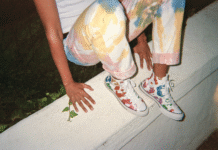
Ellia Green who represented Australia playing women’s rugby sevens for nearly a decade is the first Olympian to come out as a transgender man.
Speaking in the opening address at the Bingham Cup’s international summit on ending transphobia and homophobia in sports in Ottawa Canada, Green began his transition after he retired in 2020.
“I promised myself that when my rugby career ended, I would continue to live the rest of my life in the identity and the body that I that I know I am meant to be in,” said Green, who lives in Sydney, Australia with his wife and newborn child.
“Being open about my gender identity is a really difficult thing to do these days. All you have to do is turn on the TV, look on social media platforms, and you can see the amount of bullying, harm, and discrimination that goes on about gender identities.
“It’s extremely harmful, so for someone to be open and honest about their identity to the public eye is absolutely daunting.”
The only other transgender or gender-diverse Olympic gold medallists are Caitlyn Jenner and Quinn, who goes by one name and was part of Canada’s winning women’s soccer team in Tokyo last year.
Green said his biggest concern is the decision by sports organizations, including World Rugby and FINA, to ‘ban’ trans women and girls from participating in sport.
“Imagine not being able to do what you love because of how you identify, banning transgender people from sport, I think is disgraceful, and I think it’s hurtful.
“I think that the alarmingly high rates of suicide and the mental health challenges which trans and gender diverse youth experience will get even worse.”

Green’s views are supported by research presented at the Summit which detailed the urgent need to find effective solutions to improve the mental and physical health of trans and gender-diverse children and young people.
Professor Elizabeth Saewyc, from the University of British Columbia’s School of Nursing, said they are very concerned about the health of trans and gender-diverse young people and need to do everything possible to support them, not ban them from playing sports.
“Trans young people have poorer health than their peers across nearly every health indicator, Professor Saewyc said.
“A main contributor is the harmful discrimination and stigma they experience at school, when playing sports, and in the general community.”
Prof. Saewyc presented joint research conducted by UBC and Monash University (Australia) which collected data at 7 large rugby clubs in Canada, and 14 clubs in Australia and the UK. The study, supported by British Columbia Rugby, Rugby Australia, and professional rugby teams (Toronto Arrows, Melbourne Rebels, and the Harlequins in the UK) examined the attitudes or rugby players around the participation of trans people. The research found:
- 87% of heterosexual rugby-playing women in Canada, who were surveyed, supported full inclusion of trans women in their sport vs. case-by-case rules or banning them from sport;
- 80% of women disagreed with the statement “I would feel ‘unsafe’ playing with a transgender woman” (safety is the rationale for bans from rugby), while just 4.5% ‘strongly agreed’ they would feel unsafe;
- 16% of men and women have heard others use transphobic language at their Canadian rugby club, while an alarming 57% have heard sexist slurs used at their club (e.g. b*tch) and 22% have heard homophobic slurs (e.g. fag).
After Green’s address the President of Bingham Cup Ottawa 2022, Jean-François Laberge, said Ellia’s bravery in sharing his story would save lives and it will also shake-up the sporting world.
“To have a trans Olympic Gold Medal winner in rugby is groundbreaking and I think it’s going to help challenge and dispel many of the myths about trans people in sport, Laberge said.
“Over the last two years I have spent a lot of time speaking with and listening to women who play rugby. The research which was presented confirms what I had been hearing from women, that they are opposed to people being banned from playing their sport and there is no evidence that trans women are a safety risk to others.”
Last Updated on Aug 17, 2022
The news team for Gay Nation love tips from our readers. Got tips or a news story that you would like published? Go here to tell us something.
Visit the Gay Nation store Now




























